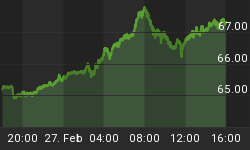When political leaders do out of there way to make make mollifying statements on the economy, it's a sure thing the opposite is about to happen. Platitudes are flowing in Japan as Haruhiko Kuroda, Japan's central bank governor, says the risk of systemic instability is "not large".
The correct interpretation of course is "the risk of instability is huge". Please consider Haruhiko Kuroda says rates must stay low until economy improves.
Haruhiko Kuroda, Japan's central bank governor, said the country's financial system could cope with rising interest rates only once the economy improved, as he laid out the stakes in his attempt to tame the volatile bond market.
Japanese banks and insurance companies have accumulated vast holdings of government bonds whose value would fall sharply if investors demanded higher yields on newly issued debt. The BoJ calculates that a 1 percentage point rise in rates would lead to mark-to-market losses equivalent to 10 per cent of tier one capital at big banks, and 20 per cent at weaker regional lenders.
Mr Kuroda said he believed that Japanese financial institutions were "strong enough to deal with these negative effects even if such a situation occurred" and that the risk of systemic instability was "not large".
Rates on 10-year Japanese government bonds climbed to 1 per cent last week for the first time in a year. The market has gyrated since Mr Kuroda announced in April that the BoJ would dramatically increase its purchases of JGBs, to the equivalent of about 70 per cent of new issuance, in an effort to stimulate lending and investment and reverse more than a decade and a half of consumer price declines.
Rates Climb Even With Japan Buying 70% of New Issuance
Rates are climbing even with massive purchases by the bank of Japan. That tells you banks and pension plans are attempting to unload existing inventory as well.
There is no one to unload to, except the Bank of Japan. Yet given age demographics, pension plans are now net sellers of Japanese bonds. And Japan is still piling on more debt with a 10-trillion Yen ($128 billion) stimulus package.
Kuroda says "rates must stay low until the economy improves" but in spite of the improvement in the stock market, business investment and demand for loans shrank for the 5th straight quarter.
The only way rates can stay low with this borrowing is is the Bank of Japan buys 100% of new issuance and all sellers of existing bonds at a price the central bank likes.
This is theoretically possible, but only if Japan is prepared to suffer the consequences of a collapsing Yen.
Further Reading
- Will Shinzo Abe Succeed with Constitutional Changes to Militarize Japan and Further Destroy the Yen?
- Nikkei Plunges 1,143 Points (7.32%); Global Equities Hammered; Start of Reflation Bubble Bust?
- Abenomics in Review: Yen, Inflation, Exports, Imports















